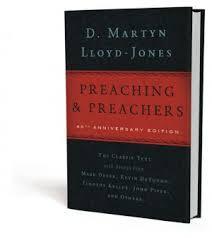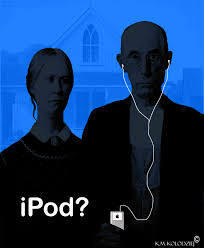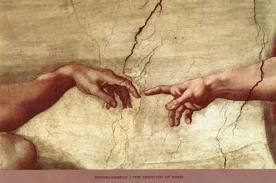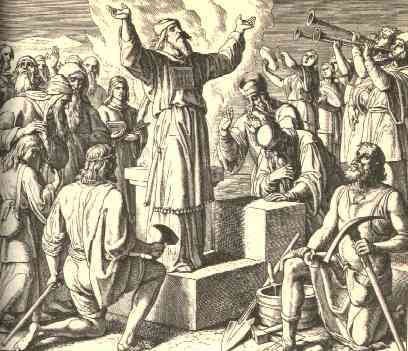Kevin DeYoung's Blog, page 150
February 9, 2012
Preaching and Preachers
 In the spring of 1969, Dr. Martyn Lloyd-Jones gave a series of lectures at Westminster Theological Seminary in Philadelphia that explored the nature of preaching and made a stirring defense for the centrality of preaching. These lectures were published in March 1972 as Preaching and Preachers. This fortieth anniversary edition is being released both to honor the legacy of Lloyd-Jones and to introduce a new generation to his wisdom and passion. When it came to preaching, the Doctor was unusually gifted, unusually insightful, and unusually opinionated. You'll find that the message of this book is just as timely and lively today as it was four decades ago.
In the spring of 1969, Dr. Martyn Lloyd-Jones gave a series of lectures at Westminster Theological Seminary in Philadelphia that explored the nature of preaching and made a stirring defense for the centrality of preaching. These lectures were published in March 1972 as Preaching and Preachers. This fortieth anniversary edition is being released both to honor the legacy of Lloyd-Jones and to introduce a new generation to his wisdom and passion. When it came to preaching, the Doctor was unusually gifted, unusually insightful, and unusually opinionated. You'll find that the message of this book is just as timely and lively today as it was four decades ago.
This new edition, which I edited, contains the original text of the 1972 edition. The content of the original messages has not been altered. But a few other elements have been added that should make this popular book even more accessible.
Subheadings have been added to aid in reading.
There are now questions at the close of each chapter for use in group discussion or personal reflection.
In addition, several contemporary preachers have written essays discussing the impact of this book and the influence Lloyd-Jones has had on their own lives. You'll find new essays from Bryan Chapell, Mark Dever, Ligon Duncan, Timothy Keller, John Piper, and myself. Our aim is to serve the church by directing a new generation of preachers to this deserving classic.
I know of no other book on preaching that will motivate you to preach like this one will. Pastors will rediscover the romance of preaching. Christians in general will be better equipped to understand the preaching task and why it must have pride of place in the church's ministry. I love this book because I believe God can use it to make better preachers and encourage better preaching. There is no more vital task. For as the pulpit goes, so goes the church.
This post is adapted from my "Note from the Editor."
February 8, 2012
American Technopoly
 My attitude toward technology is pretty simple. Like almost anything else humans create, technology can be a blessing or a curse. Some Christians harbor an immediate suspicion toward technology, assuming that anything new must be bad, especially new things they don't understand. But many others are too quick to accept technology as an unmitigated good without considering the ways every new advance can also set us back.
My attitude toward technology is pretty simple. Like almost anything else humans create, technology can be a blessing or a curse. Some Christians harbor an immediate suspicion toward technology, assuming that anything new must be bad, especially new things they don't understand. But many others are too quick to accept technology as an unmitigated good without considering the ways every new advance can also set us back.
If you tend to be a technophile, a little Neil Postman (1931-2003) might be good for you. I don't agree with all of his critiques, but he is relentlessly insightful and provocative.
A case in point is Postman's statement of faith (as it were) regarding our unbridled acceptance of technology and all that it promises to achieve. He lists several characteristics of the noble freedom fighter who resists "the American Technopoly" (which is different than resisting all technology). The list is worth reading and coming back to from time to time.
Those who resist the American Technopoly, Postman argues, are people:
who pay no attention to a poll unless they know what questions were asked, and why;
who refuse to accept efficiency as the pre-eminent goal of human relations;
who have freed themselves from the belief in the magical powers of numbers, do not regard calculation as an adequate substitute for judgment, or precision as a synonym for truth;
who refuse to allow psychology or any "social science" to pre-empt the language and thought of common sense;
who are, at least, suspicious of the idea of progress, and who do not confuse information with understanding;
who do not regard the aged as irrelevant;
who take seriously the meaning of family loyalty and honor, and who, when they "reach out and touch someone," expect that person to be in the same room;
who take the great narratives of religion seriously and who do not believe that science is the only system of thought capable of producing truth;
who know the difference between the sacred and the profane, and who do not wink at tradition for modernity's sake;
who admire technological ingenuity but do not think it represents the highest possible form of human achievement. ( Technopoly: The Surrender of Culture to Technology , 183-184)
Makes a lot of sense to me. Might even be worth laminating.
February 7, 2012
10 Reasons to Believe in a Historical Adam
 In recent years, several self-proclaimed evangelicals, or those associated with evangelical institutions, have called into question the historicity of Adam and Even. It is said that because of genomic research we can no longer believe in a first man called Adam from whom the entire human race has descended.
In recent years, several self-proclaimed evangelicals, or those associated with evangelical institutions, have called into question the historicity of Adam and Even. It is said that because of genomic research we can no longer believe in a first man called Adam from whom the entire human race has descended.
I'll point to some books at the end which deal with the science end of the question, but the most important question is what does the Bible teach. Without detailing a complete answer to that question, let me suggest ten reasons why we should believe that Adam was a true historical person and the first human being.
1. The Bible does not put an artificial wedge between history and theology. Of course, Genesis is not a history textbook or a science textbook, but that if far from saying we ought to separate the theological wheat from the historical chaff. Such a division owes to the Enlightenment more than the Bible.
2. The biblical story of creation is meant to supplant other ancient creation stories more than imitate them. Moses wants to show God's people "this is how things really happened." The Pentateuch is full of warnings against compromise with the pagan culture. It would be surprising, then, for Genesis to start with one more mythical account of creation like the rest of the ANE.
3. The opening chapters of Genesis are stylized, but they show no signs of being poetry. Compare Genesis 1 with Psalm 104, for example, and you'll see how different these texts are. It's simply not accurate to call Genesis poetry. And even if it were, who says poetry has to be less historically accurate?
4. This is a seamless strand of history from Adam in Genesis 2 to Abraham in Genesis 12. You can't set Genesis 1-11 aside as prehistory, not in the sense of being less than historically true as we normally understand those terms. Moses deliberately connects Abram with all the history that comes before him, all the way back to Adam and Eve in the garden.
5. The genealogies in 1 Chronicles 1 and Luke 3 treat Adam as historical.
6. Paul believed in a historical Adam (Rom. 5:12-21; 1 Cor. 15:21-22, 45-49). Even some revisionists are honest enough to admit this; they simply maintain that Paul (and Luke) were wrong.
7. The weight of the history of interpretation points to the historicity of Adam. The literature of second temple Judaism affirmed an historical Adam. The history of the church's interpretation also assumes it.
8. Without a common descent we lose any firm basis for believing that all people regardless of race or ethnicity have the same nature, the same inherent dignity, the same image of God, the same sin problem, and that despite our divisions we are all part of the same family coming from the same parents.
9. Without a historical Adam, Paul's doctrine of original sin and guilt does not hold together.
10. Without a historical Adam, Paul's doctrine of the second Adam does not hold together.
Christians may disagree on the age of the earth, but whether Adam ever existed is a gospel issue. Tim Keller is right:
[Paul] most definitely wanted to teach us that Adam and Eve were real historical figures. When you refuse to take a biblical author literally when he clearly wants you to do so, you have moved away from the traditional understanding of the biblical authority. . . .If Adam doesn't exist, Paul's whole argument—that both sin and grace work 'covenantally'—falls apart. You can't say that 'Paul was a man of his time' but we can accept his basic teaching about Adam. If you don't believe what he believes about Adam, you are denying the core of Paul's teaching. (Christianity Today June 2011)
If you want to read more about the historical Adam debate, check out Did Adam and Eve Really Exist? by C. John Collins.
For more on the relationship between faith and science, you may want to look at one of the following:
John C. Lennox, God's Undertake: Has Science Buried God?
Should Christians Embrace Evolution: Biblical and Scientific Responses , edited by Norman C. Nevin
God and Evolution , edited by Jay Richards
Vern S. Poythress, Redeeming Science: A God-Centered Approach
C. John Collins, Science and Faith: Friend or Foes
February 5, 2012
Monday Morning Humor
Some good car commercials from the Super Bowl.
I love this one for the Twinkies.
This extended cut of Jerry Seinfeld with the omelet guy is better than the original commercial.
February 4, 2012
When Commentaries Don't Inspire
 Last Sunday I preached on Ezra 2, which is no one's favorite chapter in the Bible. It's a long list of the exiles who returned from Babylon. But I'm preaching through Ezra, so I read the second chapter and preached from it. I admit there were times I stared at the text and prayed, "Lord what do you want to say to me and these people through these names and numbers."
Last Sunday I preached on Ezra 2, which is no one's favorite chapter in the Bible. It's a long list of the exiles who returned from Babylon. But I'm preaching through Ezra, so I read the second chapter and preached from it. I admit there were times I stared at the text and prayed, "Lord what do you want to say to me and these people through these names and numbers."
In my prayers and in my study, I was not helped by this assessment from the WBC volume on Ezra:
Chapters like Ezra 2 are among the most uninviting portions of the Bible to the modern reader both because of their tedious nature and because of their overtones of racial exclusivism and pride. However fascinating the chapter may be to the antiquarian, it is unlikely that his enthusiasm will ever be shared by more than a few (38-39).
Yikes, I thought. If you have a Ph.D. in this stuff and are passionate enough about Ezra to write a book on it, and yet this is what you think of chapter 2, what hope do the rest of us have?
Thankfully, I found inspiration from another source. I was greatly helped by a different author's commentary on Ezra, actually his commentary on the whole Old Testament: "All Scripture is breathed out by God and profitable for teaching, for reproof, for correction, and for training in righteousness, that the man of God may be competent, equipped for every good work" (2 Tim. 3:16-17). That's what Paul, inspired by the Holy Spirit, said about Ezra 2 and every other chapter in our Bibles.
And sure enough, there were some powerful lessons to be learned in that boring list of exiles. I found three: we learn something about God, something about courage, and something about the church. Go here for the rest of the story.
February 3, 2012
Is Planned Parenthood Really Not About Abortion?
The Susan G. Komen Foundation, the nation's largest breast cancer charity, has cut its funding for Planned Parenthood, the nation's largest provider of abortions. The move by Komen has enraged pro-abortion advocates and sparked a renewed debate about what Planned Parenthood actually does.
Setting aside the undercover operations and insider testimonies which have revealed that Planned Parenthood at its worst is an aggressive promoter of abortion that turns a blind eye to sex trafficking and abuse, let's simply examine the oft repeated claim that abortions only account for 3% of Planned Parenthood services. The chart reproduced by the Washington Post's Ezra Klein seems to settle the matter. Abortion is only a tiny sliver of Planned Parenthood's overall program. Most of what they do focuses on testing, contraception, and prevention. Right?
As if often the case with statistics, the devil is in the details. Klein's chart comes directly from numbers furnished by Planned Parenthood itself. You'll notice that Planned Parenthood lists 11 million total services, of which more than 300,000 were abortions, roughly 3 percent. But earlier in the report we read that these 11 million services were performed for not quite 3 million people. That means most people coming to Planned Parenthood received multiple services. A woman might come in for a pregnancy test, get tested for an STD, have abortion, and leave with contraceptives. Four services, one abortion. A closer look at the numbers, then, reveals that 1 in 9 people serviced by Planned Parenthood received an abortion. And no doubt the number is much higher if you were to look simply at those women who came in pregnant looking for help.
Just looking at their own numbers, there are more reasons to take the 3 percent claim with a generous grain of salt.
Planned Parentood provided almost 1.5 million "emergency contraceptive kits." This is a euphemism for the morning after pill, which works, in part, by preventing a fertilized egg from implanting in the uterus.
With more than 300,000 abortions in 2010, Planned Parenthood accounted for 25% of abortions in the U.S., hardly a minor player in the abortion industry.
In 2010 Planned Parenthood reported performing 329,445 abortions. Only 3% of total services, as everyone seems to know. But compare that number with the other options one might offer pregnant women. In that same year Planned Parenthood listed only 31,098 "prenatal services" and a meager 841 "adoption referals to other agencies." Which means that if you walk into Planned Parenthood with an unborn baby you are 10 times more likely to get an abortion than prenatal screening and almost 400 times more likely to be offered an abortion than given an adoption referral. So a different pie chart might look like this.
So for whatever useful purposes they may serve on ocassion, I'm not ashamed to admit that of all the things I don't trust in the world two of them at the top of the list are statistics and Planned Parenthood.
February 2, 2012
T4G Panels
I like the new Brady Bunch format for these T4G video shoots.
Also, the new approach to the panels should be great.
Panels: The New T4G Format from Together for the Gospel (T4G) on Vimeo.
A Needed Reminder
 Richard Swenson:
Richard Swenson:
The best thing to remember about time-saving technologies is that they don't. Instead, they consume, compress, and devour time. All the countries with the most time-saving technologies are the most stressed-out countries–an assertion that is easy to prove.
One Christian executive reports that he receives 1800 e-mails each day, while a Pentagon leader told me he had to do sixteen hours of e-mails every Saturday from home.
While standing at the hospital bed of a dying man, a pastor interrupted his prayer to answer his cell phone.
A youth pastor reported that he loved his job and tolerated long hours well–until he got home and routinely saw the answering machine blinking 9 messages. The escalating use of accessible technologies MUST be controlled, for the sake of your spirit and your sanity. (Margin, 124).
I know, easier said than done. But just reading about a pastor answering his cell phone at the death bed is enough to scare me straight. We need it.
February 1, 2012
Seven Thoughts on the Elephant Room and T.D. Jakes
 The second round of the Elephant Room has come and gone. But as avid blog readers know, the debate surrounding the wisdom or folly of the event continues. This one may have bigger ramifications that most quick-a-minute Christian controversies.
The second round of the Elephant Room has come and gone. But as avid blog readers know, the debate surrounding the wisdom or folly of the event continues. This one may have bigger ramifications that most quick-a-minute Christian controversies.
I won't recap all the posts out there. Justin Taylor, as usual, has a good round up of the events and a sharp analysis. Thabiti's post from several months ago was courageous and worth reading again, as is Voddie's piece from a few days ago. D.A. Carson is working on some reflections for later this week. Be sure to look for those too.
Hesitations
I have hesitated to write about the Elephant Room for several reasons: (1) I know James MacDonald and have always had good interactions withhim in the past. Until recently, we were both TGC council members. (2) Many others have already commented on the event and more commentary continues to pour out. I don't need to say something about everything. (3) I have not been eager to keep this controversy going. Like many others, I was hoping this would blow over, like yesterday.
But it hasn't. Perhaps, then, yet another set of reflections is warranted. I'm not writing to pile on. I'm not writing because controversy is fun. I don't think I've ever dared to be critical just for kicks. In every instance over the past years when I've weighed in on some book or blog post or poem or doctrine, it's been because people around me are struggling with or are confused about these things. As someone who has entered into the fray from time to time I now worry that my silence on any particular controversy says to some people that I have no problem with whatever the latest problem is. The reality is I simply don't have time to write on everything, nor do I even know about all the issues out there. And if I did, it would not be good for my soul or yours if I commented on every one of them. I skip over most things and only weigh in when it seems like people I know would be helped to hear from me or if my position suggests that I should.
I believe the Elephant Room fits into that second category. As you can imagine, this has been a difficult situation for TGC. As one of their bloggers and as a council member I think saying nothing at this point makes things worse instead of better. It can give the impression of tacit consent or fumbling acquiescence.
So here are my thoughts on ER2, in no particular order and with no particular effort to be original.
Reflections
1. The event was not framed in the right way. There have been several iterations of the event's stated purpose, but at various stages the Elephant Room was described as brothers getting together in a spirit of unity. It was originally billed as an opportunity for Christian leaders who agree on the gospel to get in the same room and talk about the things that threaten to divide us. I think it's fair to say one of the aims all along has been to show how Christians are too quick to separate and too slow to listen to each other and learn from each other. The set up from the get go presumed a certain level of agreement and camaraderie that seemed unwise to many of us. If the conference had been pitched as religious leaders talking about hard questions, that would have been great. Bring in Mormons and Muslims and Liberals and everyone else. But that's not the train that left the station several months ago.
2. Private discussion would have been better than public. I don't have any problem with conservative Christians befriending those outside our circles. We ought to do it more often. Go share a meal. Pick up the phone. Try to learn. Try to influence. That's fantastic. We should all hope that Jakes is won over to better and deeper theology. We should be thankful for all the private conversations that may proliferate as a result of this get together. I sympathize with those who want face-to-face conversation, unity in the church, and the allowance for people to change. But this doesn't mean a hyped-up conference was the best way to kick things off. The discussion didn't have to begin under the bright lights with promo videos and registration fees and all the rest. I think the intent was honorable, but prudence was lacking.
3. Why didn't anybody talk to T.D. Jakes about his prosperity gospel? His views on the subject are well known. You can find them with little trouble by picking up his books or watching his sermons on You Tube. I know people can point to good things Jakes has done-almost everyone has done some good things. But the health-wealth-blessing theology is unbiblical and anti-gospel. It has deceived many. True, in starting a relationship with someone you probably won't venture into the most controversial topics at the first meeting. But then the first meeting (or close to the first) shouldn't have been hosted in this way. The failure to bring up this critical issue undermined the whole stated purpose of the event. And if the topic was too sensitive to bring up when you are still building the relationship, then that relationship wasn't ready to be advertised and televised for the public to see. Again, working up to that in private would be wise. Avoiding the topic in a public forum like this was a big misfire.
4. The questions on the Trinity were not strong enough or careful enough. People can continue to debate whether Jakes is or is not a Modalist, but the fact that we don't know what he now believes underscores the problem. He was not pressed to make his language and commitments precise. On the one hand, we should not assume the worst about people, even about their theology. On the other hand, surely those of us who rightly care about robust orthodoxy are interested in more than checking off the right boxes. I'm not at all convinced Jakes understands or affirms orthodox Trinitarianism. But even if he meant to do so at the Elephant Room, the issue was not pressed far enough. Saying yes to the right formulations is one thing, but on something as fundamental as the Trinity, we ought to be concerned that a pastor celebrates and promotes the doctrine with passion and joy. We want to know that these core doctrines animate, infuse, and inform our pastoral ministry. We want to see that brothers understand the negation of what they affirm and are willing to guard the flock against these errors. And if someone is espousing a new position or a fuller understanding of the truth, it's fair to know how they intend to correct previous mistakes and how their ministry will change as a result. These aren't egghead, nitpicking questions. They get to the heart of the Christian faith and the essence of pastoral ministry.
5. While the efforts of James and the others may have been to correct Jakes or draw him out, I fear that the result of his participation is to make his ministry seem safer than it is. For those who think we need more of the preaching and theology and influence of T.D. Jakes, you will simply disagree with this point. But for those who believe his influence has been detrimental to the church, we should not want to give the impression that Jakes is basically pretty solid. If he's changed his approach and his theology on a whole bunch of things, or if he can be influenced for good, then let's wait and see if the gold pans out. Surely caution is in order. Though the desire to build a relationship is good, we underestimate the effect that celebrating this event, and Jakes' contribution in it, has in giving an implicit "all clear" to someone whose influence until now has been far from salutary.
6. There is a painful racial dimension to the Jakes controversy that is difficult to untangle. I'm not going to wade into all the discussion of motivation and what perspective more closely represents the African American church. But I will say this, and with deep regret: I was taken aback when one African American brother graciously pointed out to me, and a number of other whites, that he was sad to see so many of us quick to criticize Rob Bell (and rightly so he said) but silent on the devastating ministry of T.D. Jakes. It felt like a lack of concern for the many African American brothers who—out of love for the gospel and for the Lord Jesus—are laboring faithfully to lay a better theological foundation in the black church than men like T.D. Jakes have given. My friend was right. I wrote about Rob Bell because literally almost every person I knew was asking about it (which wouldn't be true in an African American context). I didn't think to talk about Jakes because I don't know people in my circles who pay him any attention. Looking back, I regret that I did not do more to speak more directly about the Elephant Room and the serious mistake in inviting T.D Jakes to share the platform in this way. Granted, the situation was more complicated because James was hosting it and I consider him a friend and a brother on the same team. The situation seemed to call for private conversations more than public statements. There were many of the former, which was right and proper. But I see now more of the latter were also necessary.
7. We need a more careful theology of criticism. There are several observations all Christians should be able to agree on, even if they sometimes pull us in opposite directions. (1) Let's not assume the worst about people. (2) Let's not shame those who aren't immediately credulous when someone with a history of bad thinking says something that could be construed as maybe okay. (3) Let's be very cautious in assigning motive. (4) Let's not take everything personally or make everything personal. (5) Let's not get our kicks from criticizing others and mucking around in controversy. (6) Let's avoid facile condemnations of all criticism, realizing that the statement itself is a criticism and the Bible is full of heroes who had a lot of bones to pick. (7) Let's accept that in this fallen world only the Lord can fully sort some things out and we don't have go twelve rounds in every conflict.
So praise Father, Son, and Holy Spirit—one God in three persons—for loving me despite so many mistakes, for loving the glory of his name above all things, and for loving the church even more than we do. Let's pray he brings good out of these hard times.
January 31, 2012
Why You Should Consider Attending the Magnify Conference
It's February 10-11 at University Reformed Church in East Lansing, Michigan. You should think about coming.
1. Bob Kauflin is our speaker. He's really good. A godly man who leads in music with excellence and is among the most insightful voices on worship today. He'll be leading in worship and giving four sessions on worship. Bob will also be preaching Sunday morning at URC.
2.The conference is put together by several churches with the involvement of several pastors. We have Baptists, Sovereign Gracers, Presbyterians, and the Reformed all working on this in friendly cooperation.
3. Smallish in size. I benefit from really big conferences. But small conferences provide a unique atmosphere of intimacy and comradery. We will have a few hundred at Magnify.
4. Affordable in cost. The conference is only $25. Come on, you can't go to Applebees for that price. We keep our expenses low and subsidize some of the cost so price doesn't have to be an obstacle.
5. Worship. What is more important than worship? This isn't just for pastors and worship leaders. This is a conference for everyone who loves to worship our gracious and glorious God.
Think about coming. More information is at the conference website.



